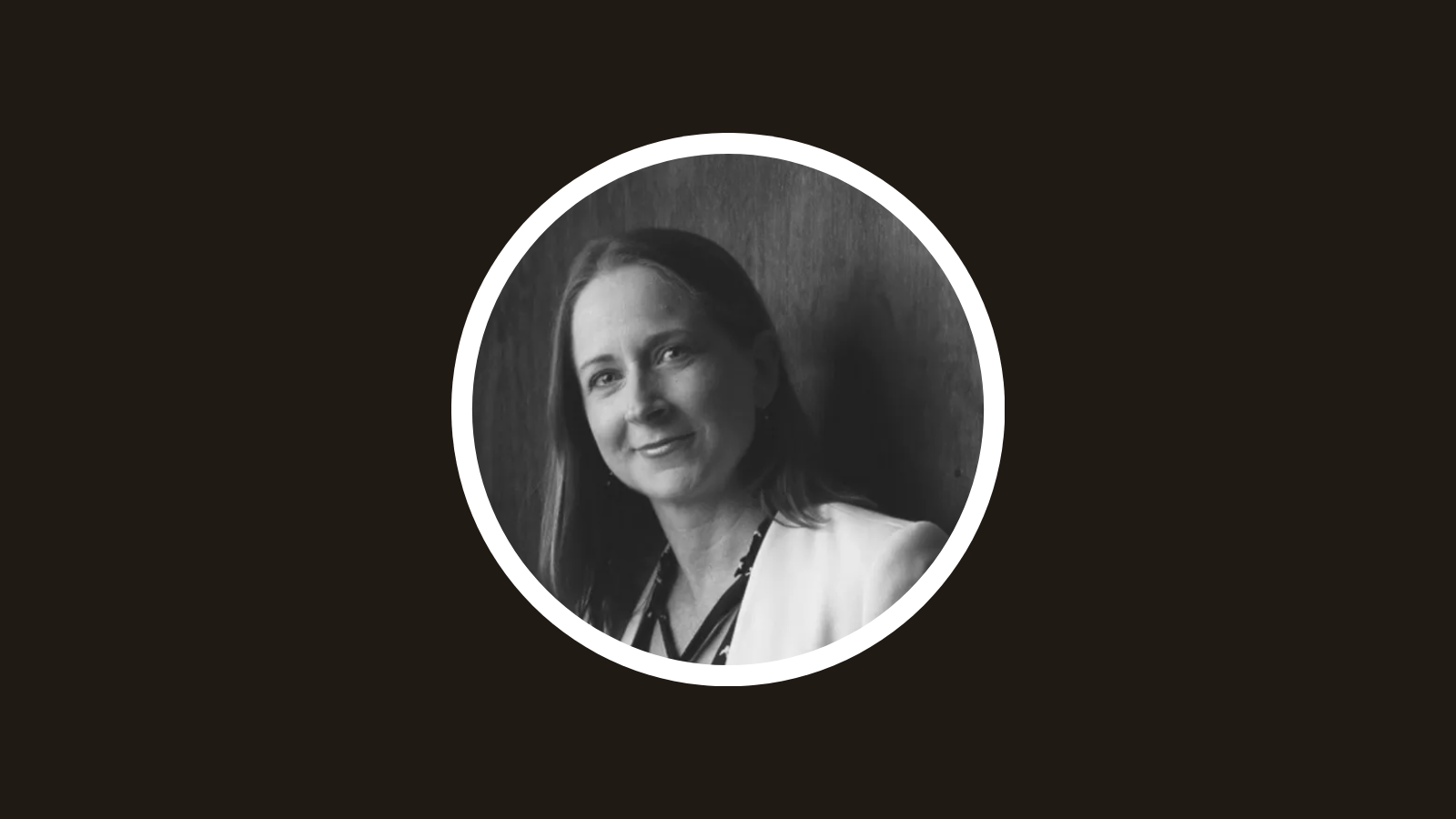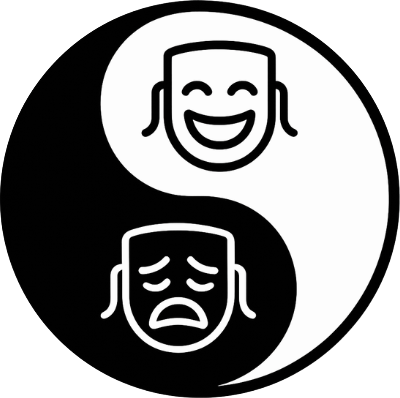#Verified: Prof Gene Moyle
Long-time Dojo friends will know that Professor Gene Moyle has had a crazy influence on the work we've been doing here from the drop. And, more recently, on Coach T's decision to pursue graduate research at the University of Queensland's School of Sport Sciences. All this to say, we were beyond ecstatic to speak to Gene in person.
Gene is an ex-ballet dancer, endorsed performance psychologist, and current Pro Vice-Chancellor (Academic Programs) at Queensland University of Technology (QUT). Although Gene's research and practice has been closely tied to the dance world, she's also worked in elite sport – including at three Winter Olympic Games.
Here, we speak to Gene about her years as a professional ballet dancer, the future of dance science, and why mindset matters most.

We'd love to start with your previous life as a professional ballet dancer. Can you walk us through your journey on that path?
Gene Moyle: The path of a professional ballet dancer always starts very young and involves many years of training and performing. My mum always tells stories that since I was a toddler, I loved to dance, move, and bop along to songs. At four, she enrolled me in movement classes in Darwin, Northern Territory. When we moved to Brisbane [when I was] about six, I started ballet classes at the wonderful Vivienne Sayers Ballet Academy, where my love of ballet and all things dance started. I also vividly remember a 1978 performance of Swan Lake by The Australian Ballet at the previous Her Majesty's Theatre in Queen Street, where the desire to be a professional dancer was solidified watching Marilyn Rowe and Gary Norman, who would later become my teachers. At 11, I auditioned and was accepted into the Australian Youth Ballet Company – which I stayed with until 15 – and gave me incredible opportunities to perform in exceptionally high-quality professional productions all over Australia.
From 13-18, I trained with the indomitable Mary Heath at the Queensland Ballet School, who fostered a strong sense of discipline, commitment, hard work, and an absolute love and appreciation of ballet as an art form. I did my first year of full-time dance training at QUT Dance, and then auditioned and was accepted into second year at the Australian Ballet School in Melbourne.
I completed my pre-professional training at the Australian Ballet School, including regional touring as part of The Australian Ballet. I also had the opportunity to perform professionally with the Queensland Ballet for one of their International Gala Seasons dancing in Les Sylphides, where I got to rehearse alongside amazing local and international artists – including Li Cunxin and Mary Li, whom I would later come to work with while I was on the board at Queensland Ballet close to 23 years later.
When did your interest in psychology enter the picture? And what sparked the connection between dance and psychology for you?
GM: I took a break from dance for about three years in my early-mid 20s ... [I] identified I was feeling a bit burnt out. During that break, I started my undergraduate study in psychology, then went back to ballet training for about three months, contemplating picking up my career again. I decided that whilst my training was coming back really well, I was happy to continue on the path of becoming a sport and exercise psychologist.
The idea of applying psychology to the performing arts – specifically dance – came in my graduating year at The Australian Ballet School back in the early '90s. I had experienced an injury – a partially torn tendon in my left foot, or so they thought. What followed was three months of no dancing and trying to keep fit through other means that did not exacerbate my injury, which was difficult. Given this occurred just before the summer holidays, it was helpful in one way, but not in others, as it meant I commenced the new training year having not done ballet or any form of dance for months. I'd put on weight due to emotional overeating in coping with the associated anxiety and stress, and was experiencing severe challenges to my self-confidence and self-esteem. Not the kind of start to my final year that I had been planning!
While there was no in-house psychological support or assistance at the time – which was pretty standard for all dance-training institutions in the '90s – the school was really helpful in locating some health professionals, including a psychiatrist who I went to see. While there were aspects of the session that were of some use, the lack of understanding of an elite performance context in which my challenges were firmly situated was evident. I didn't return for a follow-up session. During the ensuing months, I ended up working things out for myself and managed to short-circuit some of the hindering thinking patterns that had become habitual, and my dancing and confidence overall improved.
It was at that point I looked into training in psychology and came across sport and
exercise psychology – a newly evolving field, particularly in Australia at that time. And so, the idea was born, sitting on the floor in a dance studio, that once I had
finished my dance career, I wanted to retrain as a sport and exercise psychologist
and apply it to dance.
Dance science is still relatively new, but some very cool work has been done. What of the existing research strikes you as particularly exciting?
GM: Dance medicine and science has followed in the footsteps of sports medicine and science, albeit a step behind – but the industry is closing the gap quickly. With organisations such as the International Association for Dance Medicine and Science (IADMS), Performing Arts Medicine Association (PAMA), and the Australian Society for Performing Arts Healthcare (ASPAH), the advancements in research regarding all aspects of dance training and performing are exciting!
For me, the ability to explore the application of approaches to psychological, physiological, biomechanical, medical, creative, and technological areas, not just in order to assist in enhancing performance, but in supporting the artists to effectively manage and improve their overall health and well-being whilst successfully engaging in the demands of performance careers, is wonderful.
In terms of future research, what avenues do you feel could be the most compelling?
GM: Sports tech is a massive area that's providing significant advancements, and I believe it'd be fascinating to test similar prototypes and explore its use further in dance. However, the biggest challenge – again – is funding and resourcing to enable this to happen.
On the flip side, have there been challenges in selling "science" to the dance world?
GM: Less of a barrier exists now than did ten years ago. Most performing artists, artistic staff, and organisations understand the importance of psychological skills and mental health. However, the biggest challenge in embedding psychology into such settings is funding. The arts sector is poorly funded compared to other industries, and when they have to fight just to ensure their dancers are paid and shows can go on – particularly post the COVID decimation of the whole performing arts sector – funding for things like psychology isn't at the top of the list.
If you had the power to implement one change to performer training worldwide – funding limitations aside – what might you consider?
GM: For a performer to understand that they have the ability to choose their own attitude and beliefs and can change their thinking – that is, they control their brains vs. their brains controlling them – and take responsibility for making different choices. Be the master of your own destiny vs. being a victim of life. Wow… That would be impactful!
🔥🔥🔥. Do you feel you continue to benefit from your time as a professional performer in life today?
GM: Absolutely. Every day.
The ability to be disciplined and work hard in any setting – work, fitness, karate; The ability to think creatively and find solutions in the moment or on the fly; Effectively managing emotions and thoughts to be able to "perform" despite challenging circumstances – because, as always, "the show must go on"; The attention to detail; The understanding of what it's like to work repeatedly on refining and improving what you're doing; The ability to travel and adapt to different environments you have to work in at short notice; Resilience and adaptability; Teamwork; and – having fun while you do it!
Gene's qualifications: BA (Hons) Dance, Master of Psychology (Sport & Exercise), Doctor of Psychology (Sport & Exercise).
Big props to Gene for her time. You can learn more about Gene's work here and say hello here. If you do reach out, let her know you're a Dojo amigo 👊
